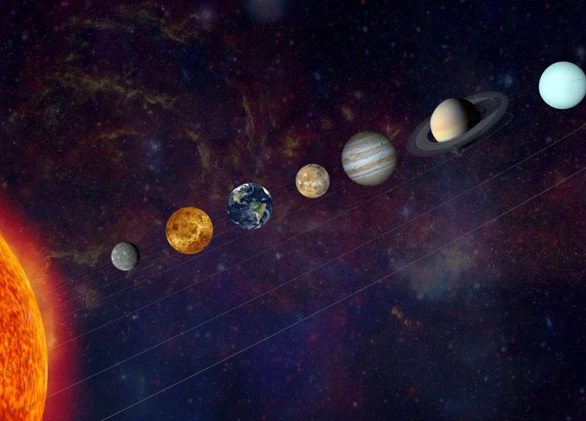Throughout history, the history and significance of planetary alignments has captivated the minds of humans, fueling an insatiable curiosity about the mysteries of the cosmos. Ancient civilizations, such as Mesopotamia, Greece, China, and the Mayans, interpreted and observed these alignments in their own unique ways, attributing profound meaning and influence to the celestial dance. The impact of planetary alignments on human beliefs and behaviors cannot be understated, with astrology gaining prominence and being associated with personality traits and major historical events. While ancient beliefs were rooted in spirituality and mysticism, modern scientific understanding has shed light on the gravitational influences and orbital interactions that shape planetary alignments. Yet, the debate between skepticism and validity of astrological predictions continues. As technology advances, enabling more precise study of planetary alignments, the future holds both excitement and speculation regarding their potential impacts on humanity. In this comprehensive article, we will delve into the rich history, the current scientific understanding, and the future of planetary alignments, offering insights into this captivating cosmic phenomenon.
Contents
- Ancient Beliefs and Astronomical Observations
- The Impact on Human Beliefs and Behaviors
- Modern Scientific Understanding
- Planetary Alignments and Astrological Predictions
- The Future of Planetary Alignments
- Conclusion
-
Frequently Asked Questions
- 1. How did ancient civilizations observe planetary alignments?
- 2. What were the beliefs of ancient Mesopotamians regarding planetary alignments?
- 3. How did ancient Greek astrology relate to planetary alignments?
- 4. What role did planetary alignments play in ancient Chinese beliefs?
- 5. How did the Mayans view planetary alignments?
- 6. What impact do planetary alignments have on personality traits?
- 7. Did astrologers in ancient times use planetary alignments to predict historical events?
- 8. How do modern scientists study the effect of planetary alignments on Earth?
- 9. Are astrological predictions based on planetary alignments valid?
- 10. What does the future hold for the study of planetary alignments?
- References
-
Frequently Asked Questions
- 1. How do planetary alignments affect astrology predictions?
- 2. Can planetary alignments cause natural disasters?
- 3. Do all cultures throughout history believe in the significance of planetary alignments?
- 4. Are there any specific character traits associated with each planetary alignment?
- 5. Have there been any major historical events attributed to planetary alignments?
- 6. Can we predict future planetary alignments accurately?
- 7. What is the relationship between planetary alignments and gravitational forces?
- 8. Are skeptics justified in dismissing the significance of planetary alignments?
- 9. How do technological advancements aid the study of planetary alignments?
- 10. Could future planetary alignments have profound impacts on humanity?
- References
- Read More
Ancient Beliefs and Astronomical Observations
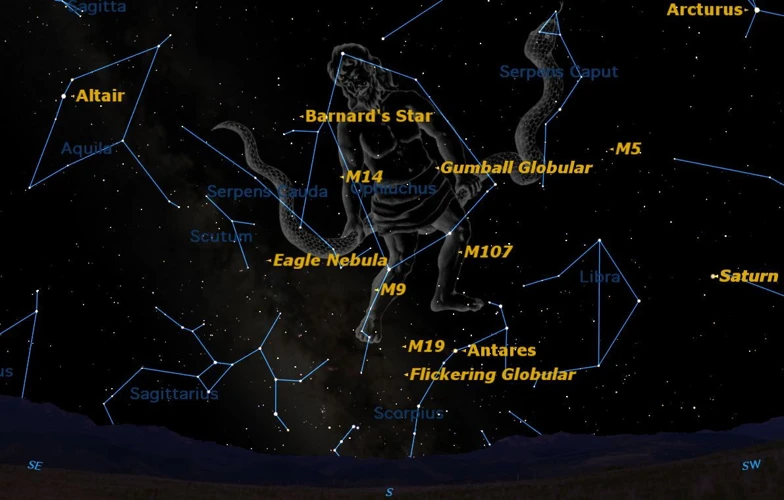
Ancient civilizations held a deep fascination for the celestial bodies and their alignments, attributing great significance to these astronomical events. Let’s explore some of the key ancient beliefs and observations from Mesopotamia, Greece, China, and the Mayans.
Mesopotamia, known as the cradle of civilization, played a pivotal role in the development of astronomy and astrology. The Mesopotamians believed that celestial events, including planetary alignments, were messages from the gods. They meticulously recorded these observations on clay tablets, creating impressive astronomical libraries. One notable celestial event was the planetary alignment known as the “Enüma Anu Enlil,” which the Mesopotamians associated with significant events on Earth.
In ancient Greece, astrology was closely intertwined with philosophy and religion. Greek astronomers, such as Ptolemy and Hipparchus, made remarkable contributions to the understanding of planetary motion and the significance of alignments. Astrologers believed that the positions and alignments of the planets at the time of a person’s birth influenced their personality traits and destiny. The concept of the zodiac, with its twelve signs, originated in ancient Greece and continues to be widely recognized today.
Ancient Chinese and Mayan civilizations also developed their own perspectives on planetary alignments. In China, celestial events were closely linked to the concept of Qi (pronounced “chee”), the flow of energy in the universe. Chinese astronomers meticulously observed and recorded comet sightings, supernovae, and planetary conjunctions. The Mayans, known for their advanced astronomical knowledge, built impressive observatories to track planetary movements. They believed that planetary alignments had a direct impact on human affairs and used these observations to create complex calendars for agricultural and religious purposes.
By studying the ancient beliefs and astronomical observations of these civilizations, we gain valuable insights into how early humans perceived and interpreted planetary alignments. These beliefs laid the foundation for later astrological practices and contributed to our ongoing fascination with the celestial world.
1.1 The Influence of Ancient Mesopotamia
Ancient Mesopotamia, often referred to as the cradle of civilization, had a profound influence on the understanding and interpretation of planetary alignments. The Mesopotamians believed that these celestial events held immense significance and were direct messages from the gods. They meticulously observed and recorded planetary alignments on clay tablets, creating one of the earliest known astronomical libraries.
One of the most notable contributions of ancient Mesopotamia to the study of planetary alignments was the development of astrology. The Mesopotamians believed that the positions and alignments of the planets at the time of a person’s birth had a direct influence on their personality traits and life path. They believed that aligning oneself with the energy of the planets could bring about positive outcomes in various aspects of life.
The concept of the zodiac, twelve distinct constellations representing the path of the Sun, originated in ancient Mesopotamia. Each constellation was associated with specific qualities and characteristics. This astrological system was foundational in shaping the way subsequent civilizations understood and interpreted planetary alignments.
The Mesopotamians believed that planetary alignments could signify important events on Earth. They associated specific alignments, such as the “Enüma Anu Enlil,” with significant occurrences, like changes in rulership, major battles, or natural disasters. These observations were not only important for understanding celestial phenomena but also for making predictions and influencing the decision-making process for rulers and leaders.
The influence of ancient Mesopotamia on the understanding of planetary alignments cannot be overstated. Their meticulous observations and cataloging of celestial events laid the foundation for the development of astrology and shaped the way subsequent civilizations perceived and interpreted these alignments. Today, we can still see echoes of their beliefs and practices in modern astrology and the continued fascination with the influence of planetary alignments on various aspects of human life.
1.2 The Role of Astrology in Ancient Greece
The ancient Greeks had a profound fascination with astrology and believed that the positions and alignments of the planets at the time of a person’s birth influenced their personality traits and destiny. Astrology played a significant role in the daily lives of the Greeks, permeating various aspects of their society and culture.
1. Astrological Significance:
– The Greeks believed that each planet was associated with specific traits and influences. For example, the planet Venus was linked to love, beauty, and harmony, while Mars was associated with energy, aggression, and war.
– They also recognized the importance of the zodiac signs, which divided the sky into twelve equal parts, each associated with specific character traits and personality tendencies.
2. Philosophical Connections:
– Astrology was intertwined with Greek philosophy, particularly with the teachings of Plato and Aristotle. They believed that the celestial bodies held profound wisdom and insights into the human condition.
– Plato, in his work “Timaeus,” argued that the movements of the planets and stars were part of a larger cosmic order, reflecting the harmony and balance of the universe.
3. Influence on Human Affairs:
– The Greeks believed that planetary alignments could have a direct impact on human affairs. For example, they associated eclipses with impending doom and made important decisions based on astrological predictions.
– Astrologers played a crucial role in advising rulers and assisting in matters such as choosing auspicious dates for important events.
4. Cultural Significance:
– The Greek pantheon of gods and goddesses was closely associated with specific celestial bodies. For instance, the goddess Venus was identified with the planet of the same name.
– Astrology was prominent in Greek art and literature, with references to celestial events and astrological symbolism in various myths and epic poems.
Despite the advancements in modern science, the influence of astrology in ancient Greece left an indelible mark on Western culture. Many of the zodiac signs and astrological concepts that originated in ancient Greece continue to be widely recognized and utilized today. The understanding of the role of astrology in ancient Greece sheds light on how human beliefs and behaviors have been shaped by celestial events and alignments throughout history.
1.3 Ancient Chinese and Mayan Perspectives
Ancient Chinese and Mayan civilizations had their own unique perspectives on planetary alignments, contributing to the rich tapestry of human understanding of the cosmos.
In ancient China, celestial observations were deeply intertwined with philosophy and the concept of Qi. Chinese astronomers meticulously recorded and analyzed various astronomical events, including planetary alignments. They believed that these alignments were not mere coincidences but rather divine messages with profound implications for human affairs. The Chinese astrologers associated specific planetary alignments with different aspects of life, such as agriculture, health, and relationships.
The Mayans, renowned for their advanced astronomical knowledge, also placed great importance on planetary alignments. They constructed elaborate observatories and meticulously tracked the movements of celestial bodies, including planets. The Mayans believed that the alignment of planets held significance for their agricultural practices, as well as for their religious and spiritual ceremonies. They utilized their observations to develop intricate calendars that guided their daily lives and rituals.
Both the ancient Chinese and Mayan perspectives on planetary alignments highlight the universal human fascination with the alignment of celestial bodies. These civilizations recognized the interconnectedness between the movements of the planets and human existence, ascribing immense importance to these alignments in various aspects of their lives. The insights gained from these ancient perspectives continue to influence our understanding and interpretation of planetary alignments in the modern world.
The Impact on Human Beliefs and Behaviors
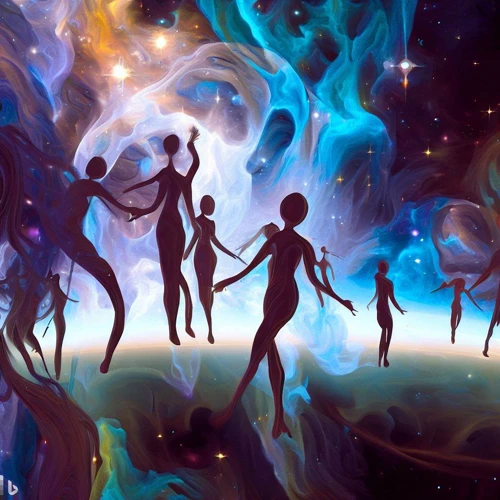
The impact of planetary alignments on human beliefs and behaviors has been profound throughout history. Astrology, which attributes personality traits and major life events to the positions and alignments of celestial bodies, has played a central role in shaping these impacts.
Astrological Significance and Personality Traits: Astrologers believe that the positions of planets at the time of a person’s birth can influence their personality traits and characteristics. For example, individuals born under the sign of Leo are often associated with strong leadership qualities and a zest for life, while those born under the sign of Libra are believed to possess a balanced and diplomatic nature. These astrological interpretations have influenced individuals’ self-perception, interpersonal relationships, and even career choices.
Astrological Alignments and Major Historical Events: In addition to personality traits, astrologers suggest that planetary alignments have influenced major historical events. For example, the conjunction of Saturn and Pluto in Capricorn in January 2020 was seen by some astrologers as a significant alignment with potential global implications. This alignment coincided with the outbreak of the COVID-19 pandemic and the subsequent global economic and social upheaval. While the scientific validity of these interpretations is debated, the belief in such correlations has been influential in shaping human behavior and decision-making throughout history.
While astrology is often met with skepticism, its impact on human beliefs and behaviors should not be overlooked. People have turned to astrological predictions to seek guidance, understand themselves and their relationships better, and make important life decisions. The belief in the influence of planetary alignments extends to various aspects of life, including romantic relationships, career choices, and even financial decisions. Whether individuals consult their daily horoscopes or seek in-depth astrological interpretations, the impact of planetary alignments on human beliefs and behaviors persists.
The impact of planetary alignments on human beliefs and behaviors showcases the fascinating interplay between celestial events and human perception. While skeptics may dismiss astrology as mere pseudoscience, its enduring popularity and influence on individuals’ lives highlight the deeply ingrained connection between the cosmos and human existence.
2.1 Astrological Significance and Personality Traits
Astrology has long been associated with the interpretation of planetary alignments and their influence on human personality traits. This belief dates back to ancient civilizations and continues to hold significance in modern astrology. According to astrological teachings, each planet is associated with specific qualities and energies that can shape an individual’s character and behavior.
In astrological interpretations, the position of the planets at the time of a person’s birth is analyzed to determine their astrological sign, also known as their sun sign. For example, someone born when the sun is aligned with the constellation Aries is considered to have an Aries sun sign. Each sun sign is believed to possess distinct personality traits and characteristics.
The alignment of other planets in relation to the sun sign, known as aspects, further influences an individual’s personality. For instance, the alignment between Venus and Mars is believed to influence one’s romantic inclinations and passions. This astrological aspect can shed light on an individual’s approach to romantic relationships and desires for love and companionship. Planetary alignments can therefore provide insights into the compatibility between two individuals and their potential for harmonious relationships.
Astrologers also study the moon sign, which represents one’s emotions and inner self. The moon’s alignment with other planets can indicate emotional tendencies and responsiveness. For example, a moon sign aligned with Pluto may suggest intense emotions, while a moon sign aligned with Jupiter may indicate a more optimistic and expansive emotional nature. These alignments are thought to shape an individual’s emotional intelligence and reactions to different life situations.
While some may view astrology’s influence on personality traits as subjective or unscientific, it remains a popular belief system that many individuals find comfort, guidance, and self-reflection in. The interpretation of astrological significance and personality traits is a personal and complex process, involving various factors and considerations unique to each individual’s birth chart and alignment.
As we delve into the significance of planetary alignments, it becomes evident that astrology provides a rich tapestry of beliefs and meanings that continue to captivate and shape human understanding of themselves and their place in the cosmos.
2.2 Astrological Alignments and Major Historical Events
Throughout history, there have been numerous instances where astrological alignments were believed to have had a significant impact on major historical events. These celestial phenomena were often interpreted as divine messages or omens for individuals and societies. While skeptics may question the validity of such interpretations, the correlation between planetary alignments and historical events cannot be denied.
One notable example is the alignment of Saturn and Pluto in the zodiac sign of Capricorn in January 2020. Astrologers predicted that this alignment would bring about transformative changes on a global scale. Coincidentally, around the same time, the world witnessed the outbreak of the COVID-19 pandemic, which indeed triggered significant societal transformations.
Another powerful alignment took place in 1969 when the three outer planets, Jupiter, Saturn, and Uranus, were in conjunction in the zodiac sign of Libra. This alignment coincided with significant historical events, including the moon landing, the Woodstock music festival, and the peak of the civil rights movement. Many believed that this alignment symbolized a time of societal change and cultural revolution.
In ancient times, astrological alignments were often associated with the rise and fall of empires. For example, the alignment of Saturn, Jupiter, and Mars in the zodiac sign of Aries in 331 BCE was believed to have foretold the conquest of the Persian Empire by Alexander the Great. Similarly, the alignment of Saturn and Pluto in Capricorn in the year 1284 coincided with the fall of the Mongol Empire.
While the interpretations of these alignments may vary, the undeniable connection between astrological events and major historical occurrences has influenced the course of human history. Whether these alignments serve as symbolic reminders or whether they exert a tangible influence on human affairs remains a subject of debate. Nonetheless, the belief in the significance of astrological alignments and their connection to significant historical events has persisted throughout the ages.
Modern Scientific Understanding
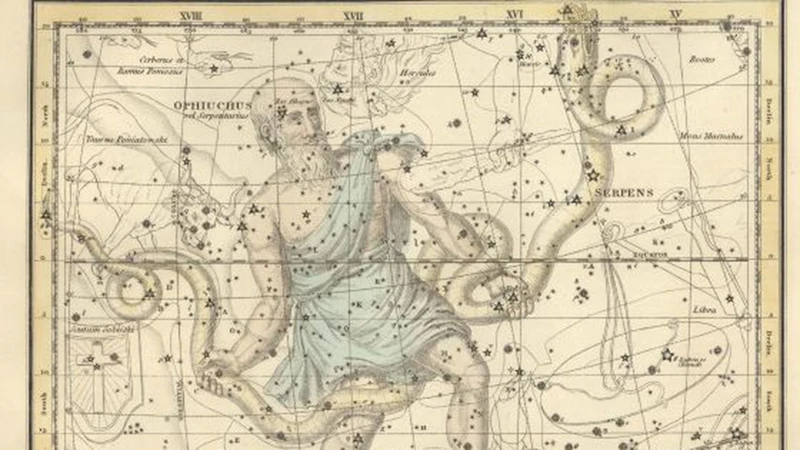
In modern times, advancements in scientific understanding have allowed us to view planetary alignments through a lens of physics and astronomy. The study of gravitational influences and orbital interactions has provided a deeper comprehension of the mechanics behind these cosmic events.
Gravitational forces play a crucial role in the formation and movement of celestial bodies. Planetary alignments occur when multiple planets align along a straight line or form geometric patterns in space. These alignments are a result of the gravitational pull exerted by each planet on the others. While the gravitational force between planets is relatively weak, it can still have subtle effects on their orbits and positions.
Scientists have also explored the effects of planetary alignments on Earth. Some researchers have hypothesized that certain alignments can exert gravitational forces on our planet, causing tides and potentially influencing geological activity. However, the evidence for these effects remains inconclusive, and more research is needed to establish any direct correlation between planetary alignments and Earth’s phenomena.
Mathematical models and computer simulations have been employed to predict future alignments and better understand their patterns. These models allow scientists to calculate planetary positions accurately and determine the probability of specific alignments occurring within a given timeframe.
It is important to note that while modern scientific understanding provides explanations for the mechanics of planetary alignments, it differs significantly from the interpretations of ancient civilizations. Scientific study focuses on the physical aspects of these events, rather than attributing symbolic or astrological meanings to them.
In the quest to unravel the mysteries of the universe, scientists continue to explore planetary alignments and their significance. Advancements in technology, such as powerful telescopes and space probes, allow for more detailed observations and measurements. These groundbreaking developments enable scientists to refine their understanding of celestial mechanics and deepen our knowledge of planetary alignments and their place within the vast cosmos.
3.1 Gravitational Influences and Orbital Interactions
Gravitational influences and orbital interactions play a significant role in understanding planetary alignments. The gravitational force exerted by celestial bodies, such as planets and the Sun, is responsible for shaping the intricate dance of these cosmic objects.
Newton’s law of universal gravitation provides a fundamental understanding of how objects with mass attract one another. In the case of planetary alignments, the gravitational pull of the planets affects their positions and movements, both individually and in relation to each other. This gravitational interplay is especially notable during conjunctions and oppositions, where planets appear to be in close proximity to one another in the sky.
Orbital interactions also come into play when considering planetary alignments. Each planet follows a specific orbit around the Sun, and these orbits are not perfectly circular but rather elliptical. As a result, their distances from the Sun and each other vary throughout their respective orbital periods. These varying distances, combined with the gravitational interactions among the planets, contribute to the ever-changing patterns of planetary alignments.
One remarkable phenomenon influenced by gravitational interactions and orbital dynamics is the occurrence of transits. Transits happen when a planet passes directly between the Earth and the Sun, creating a rare alignment. The most famous transit is the transit of Venus, which occurs in pairs separated by over a hundred years. These transits have been vital in scientific efforts to measure the distance between the Earth and the Sun, as well as the study of exoplanets.
Understanding the gravitational influences and orbital interactions provides a solid scientific basis for comprehending planetary alignments. It allows astronomers to calculate and predict future alignments with a high degree of accuracy, enhancing our understanding of the celestial mechanics that govern our solar system. By studying these phenomena, we deepen our knowledge of our place in the universe and gain insights into the intricacies of the cosmos.
3.2 Studying the Effect of Planetary Alignments on Earth
Studying the effect of planetary alignments on Earth has been a subject of scientific inquiry, aiming to understand any potential correlations or influences these alignments may have. Researchers have explored various aspects to gain insights into this phenomenon.
One area of study is the gravitational influences of planetary alignments. When multiple planets align, their combined gravitational pull could potentially have a slight effect on Earth’s tides and geophysical activity. However, it is important to note that the gravitational forces of planets are relatively weak compared to other factors that affect Earth’s systems, such as tidal forces from the Moon.
Another aspect that scientists examine is the potential impact of planetary alignments on Earth’s climate. Some researchers hypothesize that certain alignments, particularly when multiple gas giants like Jupiter and Saturn align, could affect solar activity, leading to variations in Earth’s climate patterns. However, these hypotheses are still being investigated, and the direct causality between planetary alignments and Earth’s climate remains uncertain.
In addition to the physical effects, scientists also study the potential psychological and societal impacts of planetary alignments. While astrology suggests connections between planetary alignments and personality traits or major historical events, scientific studies have not found concrete evidence to support these claims. Nonetheless, the study of human psychology and behavior in relation to celestial events remains an intriguing field of research.
Researchers utilize sophisticated tools and techniques to observe and analyze planetary alignments. Earth-based telescopes, space-based observatories, and computer simulations all play a role in studying the effects of these alignments. By carefully observing and measuring the positions and interactions of planets, scientists hope to unravel any direct or indirect influences they may have on Earth.
Studying the effect of planetary alignments on Earth involves a multidisciplinary approach. Scientists explore the gravitational influences, potential climate impacts, and psychological/societal aspects to gain a comprehensive understanding of these celestial phenomena. While some correlations have been suggested, it is essential to approach the topic with both curiosity and skepticism, appreciating the ongoing research and advancements in this field.
Planetary Alignments and Astrological Predictions

Planetary alignments have long been associated with astrological predictions, forming the basis for various interpretations and forecasting methods. Astrologers believe that the relative positions of the planets and their alignments can have a profound influence on individual lives and societal events.
One aspect of astrological predictions is the association of planetary alignments with personality traits and compatibility in romantic relationships. For example, when Venus and Mars align favorably, astrologers suggest that it may indicate a period of increased harmony and passion in relationships. Additionally, planetary aspects like the harmonizing trine aspect, which signifies a 120-degree angular separation between planets, is believed to bring about opportunities for growth and positive transformations in different areas of life. (You can learn more about the harmonizing effects of trine aspects by following this link).
However, it’s essential to note that there are varying interpretations and skepticism regarding the validity of astrological predictions. Critics argue that the correlations drawn between planetary alignments and human behavior lack scientific evidence, dismissing them as mere coincidences or baseless claims. Despite these criticisms, astrology continues to maintain a significant following and influence on many individuals.
Astrologers also associate planetary alignments with major historical events. For example, some have suggested that the alignment of Uranus and Pluto in conjunction during the 1960s played a role in the social and cultural revolutions that took place during that time. These alignments are believed to create energetic shifts that can impact collective consciousness and societal changes.
While the validity and interpretation of astrological predictions remain subjects of debate, the fascination with planetary alignments and their influence on human lives continues to captivate many. As technology and research advance, new discoveries and studies may shed further light on the potential relationships between celestial events and human experiences.
4.1 Critiques and Skepticism
While astrology and the significance of planetary alignments continue to intrigue many, there are critics and skeptics who question the validity of astrological predictions. Skepticism arises from the viewpoint that astrology lacks empirical evidence and relies on subjective interpretations. Critics argue that personality traits and future events cannot be accurately determined solely based on the position of celestial bodies. Additionally, some scientists argue that the gravitational forces exerted by distant planets have negligible effects on human lives compared to other factors such as genetics and environment.
Critics also point out the Barnum effect, where people tend to accept vague or general statements about themselves as accurate solely because they believe the statement applies specifically to them. This phenomenon can lead to the perception that astrological predictions are accurate when, in reality, they are often broad and open to interpretation.
Despite the skeptical viewpoint, astrology and the study of planetary alignments continue to captivate and influence many individuals. While scientific evidence may be limited, the psychological and spiritual effects of astrology cannot be wholly dismissed. The debate between skeptics and believers is likely to persist, with both sides offering valid arguments.
It is important to approach astrology and the significance of planetary alignments with an open mind and a critical perspective. Understanding the limitations and potential biases involved allows for a balanced evaluation of astrological predictions. Whether one chooses to embrace or question astrology, it remains an enduring and intriguing aspect of human fascination with the cosmos.
Note: Interested in exploring the wonders of the night sky? Check out our guide on the best viewing spots for meteor showers for a sublime celestial experience.
4.2 Validity and Interpretation of Astrological Predictions
The validity and interpretation of astrological predictions have long been the subject of debate among scholars and skeptics. While some believe that planetary alignments hold influence over human lives and events, others view astrology as mere pseudoscience. Let’s delve into this topic and explore different perspectives.
1. Scientific Skepticism: Many scientists argue that astrological predictions lack a scientific basis. They question the validity of claims that planetary alignments can accurately predict personality traits or future events. Skeptics argue that the effects of celestial bodies on human lives are negligible compared to other factors such as genetics and upbringing.
2. Statistical Analysis: Some astrologers attempt to support the validity of predictions through statistical analysis. They collect data on individuals’ birth charts and analyze correlations between planetary alignments and specific traits or events. However, critics argue that these studies often lack proper controls and fail to prove a causal relationship between celestial positions and human experiences.
3. Astrological Interpretation: Validating astrological predictions heavily relies on the interpretations of astrologers themselves. Interpretation plays a crucial role in shaping the accuracy and relevance of astrological readings. Different astrologers may have varying methodologies and interpretations, leading to inconsistencies and disagreements in predictions.
4. Personal Experiences: Many individuals strongly believe in astrology based on personal experiences they attribute to planetary alignments. They claim that astrological predictions have accurately reflected their lives and provided valuable insights. While personal anecdotes cannot be solely relied upon as scientific evidence, they contribute to the ongoing discussion about the validity and impact of astrology.
5. Open Mindedness: Some individuals adopt a more open-minded approach, acknowledging that astrology may have some validity, even if it cannot be fully explained by current scientific understanding. They highlight that cultural and historical contexts should be considered when evaluating the significance of astrological predictions.
The validity and interpretation of astrological predictions remain a topic of controversy and discussion. While scientific skepticism questions the scientific basis of astrology, personal experiences and the interpretations of astrologers contribute to the ongoing belief in its efficacy. Ultimately, the assessment of astrological predictions depends on an individual’s perspective and willingness to embrace the mysteries and complexities of the cosmos.
The Future of Planetary Alignments
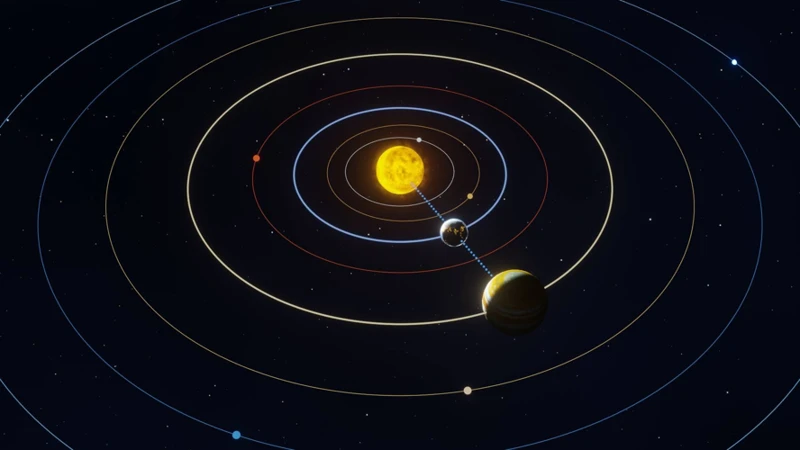
The future of planetary alignments holds both excitement and speculation as advancements in technology provide new opportunities for studying and understanding these cosmic phenomena. Here are some key aspects to consider when pondering the future of planetary alignments.
1. Technological Advancements in Studying Planetary Alignments:
– High-Powered Telescopes: Technological advancements in telescope design and capabilities allow astronomers to observe planetary alignments in greater detail and with increased precision. These telescopes, such as the Hubble Space Telescope, are equipped with advanced imaging systems that capture breathtaking images of celestial objects and their alignments.
– Space Exploration Missions: Space agencies, such as NASA and ESA, continue to send missions into space to explore and study planets, their moons, and their interactions. These missions provide invaluable data on planetary alignments, gravitational influences, and orbital interactions. For example, the Cassini mission to Saturn provided unprecedented insights into the planet’s rings and moons, enhancing our understanding of planetary alignments within the Saturnian system.
2. Speculations and Possible Impacts on Humanity:
– Environmental Effects: Some researchers speculate that planetary alignments might have subtle but detectable effects on Earth’s environment. The gravitational forces exerted by aligned planets could potentially influence tides, weather patterns, and volcanic activity. However, the scientific consensus on the extent of these effects remains a topic of debate.
– Societal Perspectives: As our understanding of planetary alignments deepens, there could be a renewed interest in ancient astrological beliefs and their impact on human behavior and destiny. Individuals may seek to find harmony and guidance through astrological interpretations of planetary alignments, looking for insights in fields like relationships, career choices, and personal growth. However, the validity and interpretation of astrological predictions still arouse skepticism and varying opinions.
It is important to approach the future of planetary alignments with a balance of scientific inquiry and open-mindedness. As our technology continues to improve, we will gain further insights into the mysteries of these celestial events. Whether their impacts on humanity are primarily scientific or have deeper, astrological significance, the future promises continued fascination and exploration of planetary alignments.
5.1 Technological Advancements in Studying Planetary Alignments
As technology continues to advance, so does our ability to study and understand planetary alignments with greater precision. These technological advancements have revolutionized the field of astronomy and allowed researchers to uncover fascinating insights into the mechanics and effects of these celestial events.
One significant technological advancement is the development of powerful telescopes. These instruments have provided astronomers with the ability to observe celestial bodies and alignments in incredible detail, allowing them to track and measure the positions of planets with high accuracy. Telescopes equipped with advanced imaging techniques and spectroscopy have enabled scientists to gather valuable data on the atmospheres, compositions, and interactions of the planets.
In addition to telescopes, space missions have played a crucial role in expanding our knowledge of planetary alignments. Probes and satellites sent into space provide a closer look at the planets and their interactions. Missions such as NASA’s Voyager and Cassini have captured stunning images, collected data, and conducted flybys of various celestial bodies, enhancing our understanding of their dynamics and alignments.
Another technological advancement is the development of computer simulations and modeling. These tools enable scientists to recreate complex astronomical scenarios and study the effects of planetary alignments in a virtual environment. By inputting precise data and parameters into these simulations, researchers can simulate alignments that have occurred in the past or predict future alignments, aiding in the study of their potential impacts on Earth and other celestial bodies.
The advent of big data analysis and machine learning has revolutionized the field of astronomy. With vast amounts of data being collected from telescopes and space missions, sophisticated algorithms can analyze and identify patterns, correlations, and potential relationships between planetary alignments and various phenomena. This allows scientists to uncover hidden insights and make more accurate predictions about the effects of these celestial events.
Technological advancements have propelled the study of planetary alignments to new heights. Powerful telescopes, space missions, computer simulations, and data analysis techniques have revolutionized our understanding of these celestial events. As technology continues to evolve, our ability to observe, study, and interpret planetary alignments will undoubtedly continue to expand, offering ever-deeper insights into the wonders of our universe.
5.2 Speculations and Possible Impacts on Humanity
As scientific knowledge and technological advancements continue to expand, speculation regarding the possible impacts of planetary alignments on humanity has grown. While concrete evidence is scarce, some intriguing possibilities and theories have been put forth.
1. Increased Earthquakes and Natural Disasters: Speculation suggests that certain alignments of planets could exert gravitational forces on Earth, potentially triggering geological instabilities. However, scientific consensus remains skeptical, as the gravitational influence of distant planets is generally considered to be negligible compared to other factors contributing to earthquakes and natural disasters.
2. Shifts in Human Consciousness: Some individuals theorize that specific planetary alignments can have subtle but profound effects on human consciousness, leading to shifts in thought patterns, emotions, and spiritual awareness. These claims often draw inspiration from ancient beliefs and metaphysical interpretations. However, scientific evidence to support these claims is lacking.
3. Advancements in Astrological Predictions: Technological advancements, such as powerful supercomputers and advanced algorithms, have allowed astrologers to make more precise predictions based on planetary alignments. However, the validity and accuracy of these predictions remain a subject of debate among both scientists and astrologers.
4. Cultural and Societal Changes: Speculations suggest that planetary alignments may have subtle influences on cultural trends and societal shifts. For example, some astrologers propose that certain alignments can create conditions favoring innovation, artistic expression, or political change. However, these claims lack empirical evidence and are viewed with skepticism by many experts.
5. Impact on Personal Relationships: Astrologers often explore the potential impact of planetary alignments on romantic relationships and compatibility. It is theorized that specific alignments may enhance or challenge the dynamics between individuals, influencing the success or longevity of partnerships. However, it is important to note that scientific studies have not provided conclusive evidence supporting these claims.
It is essential to approach these speculations with critical thinking and an understanding of the limitations of current scientific knowledge. While planetary alignments continue to intrigue and captivate our collective imagination, further research and empirical evidence are needed to substantiate these speculations and understand their true impact on humanity.
Conclusion

In conclusion, the history and significance of planetary alignments have shaped human beliefs, behaviors, and our understanding of the cosmos. Ancient civilizations, such as Mesopotamia, Greece, China, and the Mayans, observed and interpreted these alignments in their own unique ways, attributing profound meaning and influence to the celestial dance in the sky. The impact of planetary alignments on human beliefs can be seen through the development and prominence of astrology, which has been associated with personality traits and major historical events. While ancient beliefs were rooted in spirituality and mysticism, modern scientific understanding has revealed the gravitational influences and orbital interactions that shape planetary alignments. However, the debate between skepticism and validity of astrological predictions continues. Technological advancements have allowed for more precise study of planetary alignments, providing us with a deeper understanding of their mechanics and effects on Earth. Looking to the future, there is both excitement and speculation regarding the potential impacts of planetary alignments on humanity. As we continue to explore the mysteries of the cosmos, planetary alignments will remain a captivating and enigmatic phenomenon, influencing both our scientific pursuits and our cultural beliefs.
Frequently Asked Questions

1. How did ancient civilizations observe planetary alignments?
Ancient civilizations observed planetary alignments by diligently recording the positions of celestial bodies using various methods such as star charts and astronomical instruments, and documenting their observations on clay tablets, papyrus scrolls, or other materials.
2. What were the beliefs of ancient Mesopotamians regarding planetary alignments?
Ancient Mesopotamians believed that planetary alignments were messages from the gods and held great significance in predicting events on Earth. They saw these alignments as signs of divine intervention and explored their potential impact on human affairs.
3. How did ancient Greek astrology relate to planetary alignments?
In ancient Greece, astrology and the interpretation of planetary alignments played a vital role in understanding an individual’s personality traits and destiny. The positions of the planets at the time of a person’s birth were thought to have a deep influence on their life and character.
4. What role did planetary alignments play in ancient Chinese beliefs?
Planetary alignments held a significant role in ancient Chinese beliefs due to their association with the flow of energy or Qi in the universe. Chinese astronomers observed and noted celestial events such as planetary conjunctions and comets to gain insight into the energy patterns and their potential effects on human affairs.
5. How did the Mayans view planetary alignments?
The Mayans attributed great importance to planetary alignments and believed they were closely tied to human events. They constructed sophisticated observatories to track celestial movements, including planetary alignments, and used them to create calendars for agricultural planning, religious rituals, and divination.
6. What impact do planetary alignments have on personality traits?
According to astrological beliefs, planetary alignments at the time of a person’s birth are thought to influence their personality traits. Each planet and its position in relation to the zodiac is associated with specific character traits, contributing to the unique qualities of an individual.
7. Did astrologers in ancient times use planetary alignments to predict historical events?
Some astrologers in ancient times believed that planetary alignments could serve as omens and indicators of significant historical events. They studied celestial configurations and interpreted their potential impacts on political, social, and environmental occurrences.
8. How do modern scientists study the effect of planetary alignments on Earth?
Modern scientists study the effect of planetary alignments on Earth through precise measurements and calculations, taking into account gravitational influences and orbital interactions. They use advanced technology, such as telescopes, satellites, and computer simulations, to understand the scientific mechanisms behind these alignments.
9. Are astrological predictions based on planetary alignments valid?
The validity of astrological predictions based on planetary alignments remains a topic of debate. While some people find correlations between astrological insights and personal experiences, others attribute perceived outcomes to coincidence or subjective interpretation.
10. What does the future hold for the study of planetary alignments?
Advancements in technology and scientific research methods hold the promise of uncovering deeper insights into the study of planetary alignments. With improved data collection and analysis, scientists may be able to investigate potential relationships between celestial phenomena and various aspects of human life, broadening our understanding of the universe and our place within it.
References
- Rare Planetary Alignments: What is a Conjunction?
- Planetary Alignment Didn’t End the World in 1919. But One …
Frequently Asked Questions

1. How do planetary alignments affect astrology predictions?
Planetary alignments are believed to amplify the energies of the planets involved, influencing the interpretations made by astrologers. They are seen as significant events that can enhance the accuracy and intensity of astrological predictions.
2. Can planetary alignments cause natural disasters?
While planetary alignments can create gravitational interactions, the likelihood of them directly causing natural disasters is still uncertain. Scientists continue to study these alignments to better understand their potential impacts on Earth’s systems.
3. Do all cultures throughout history believe in the significance of planetary alignments?
No, not all cultures throughout history have placed significance on planetary alignments. Different civilizations developed their own beliefs and interpretations of astronomical observations, often influenced by their cultural and religious practices.
4. Are there any specific character traits associated with each planetary alignment?
Astrologers believe that each planetary alignment can influence certain personality traits. For example, alignments involving Mars may be associated with assertiveness and drive, while alignments involving Venus may be connected to love and harmony.
5. Have there been any major historical events attributed to planetary alignments?
While some people speculate that major historical events have been influenced by planetary alignments, it is challenging to establish a direct causal relationship. Historical events are often influenced by numerous factors, making it difficult to isolate the impact of planetary alignments.
6. Can we predict future planetary alignments accurately?
Yes, scientists can accurately predict future planetary alignments using precise mathematical calculations and astronomical models. This allows us to plan and study the potential effects of these alignments on various aspects of our lives.
7. What is the relationship between planetary alignments and gravitational forces?
Planetary alignments can result in gravitational interactions between celestial bodies. The gravitational forces exerted by planets and other celestial objects play a crucial role in the dynamics of our solar system.
8. Are skeptics justified in dismissing the significance of planetary alignments?
Skeptics focus on the lack of scientific evidence supporting the direct influence of planetary alignments on human affairs. However, the cultural and historical significance of these alignments cannot be disregarded, as they have shaped beliefs and practices throughout human history.
9. How do technological advancements aid the study of planetary alignments?
Technological advancements, such as advanced telescopes and computer simulations, have enabled researchers to gather more precise data about planetary alignments. This data contributes to a deeper understanding of the mechanics and implications of these alignments.
10. Could future planetary alignments have profound impacts on humanity?
While the exact impacts of future planetary alignments on humanity are uncertain, they provide opportunities for scientific exploration and philosophical contemplation. Speculations range from potential influences on climate patterns to shifts in societal dynamics, but further research is needed to draw concrete conclusions.
References
- Planetary alignment and the meaning of July 4th
- When do the planets in our solar system all line up?
- Planetary Alignment of 5 May 2000 – the NSSDCA

